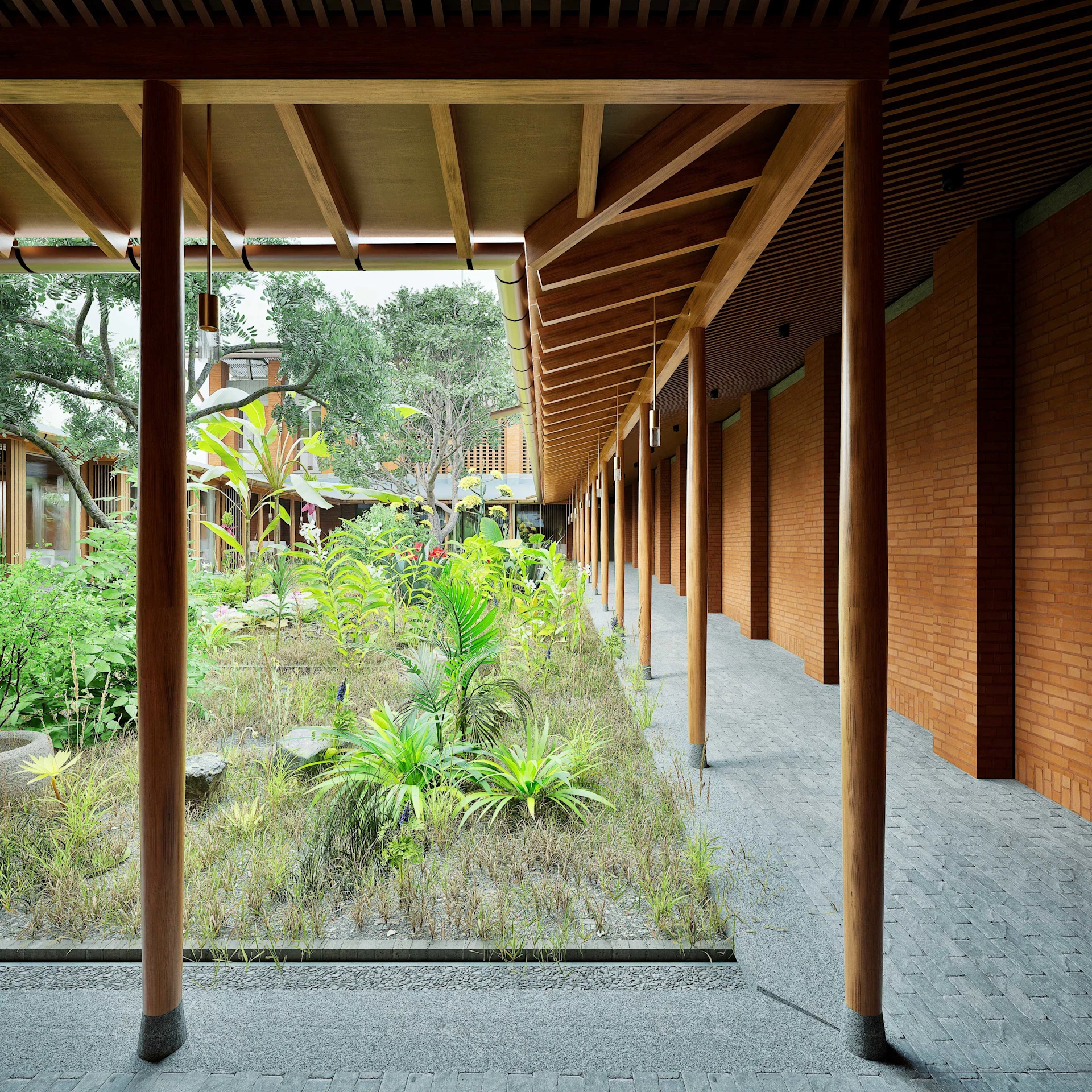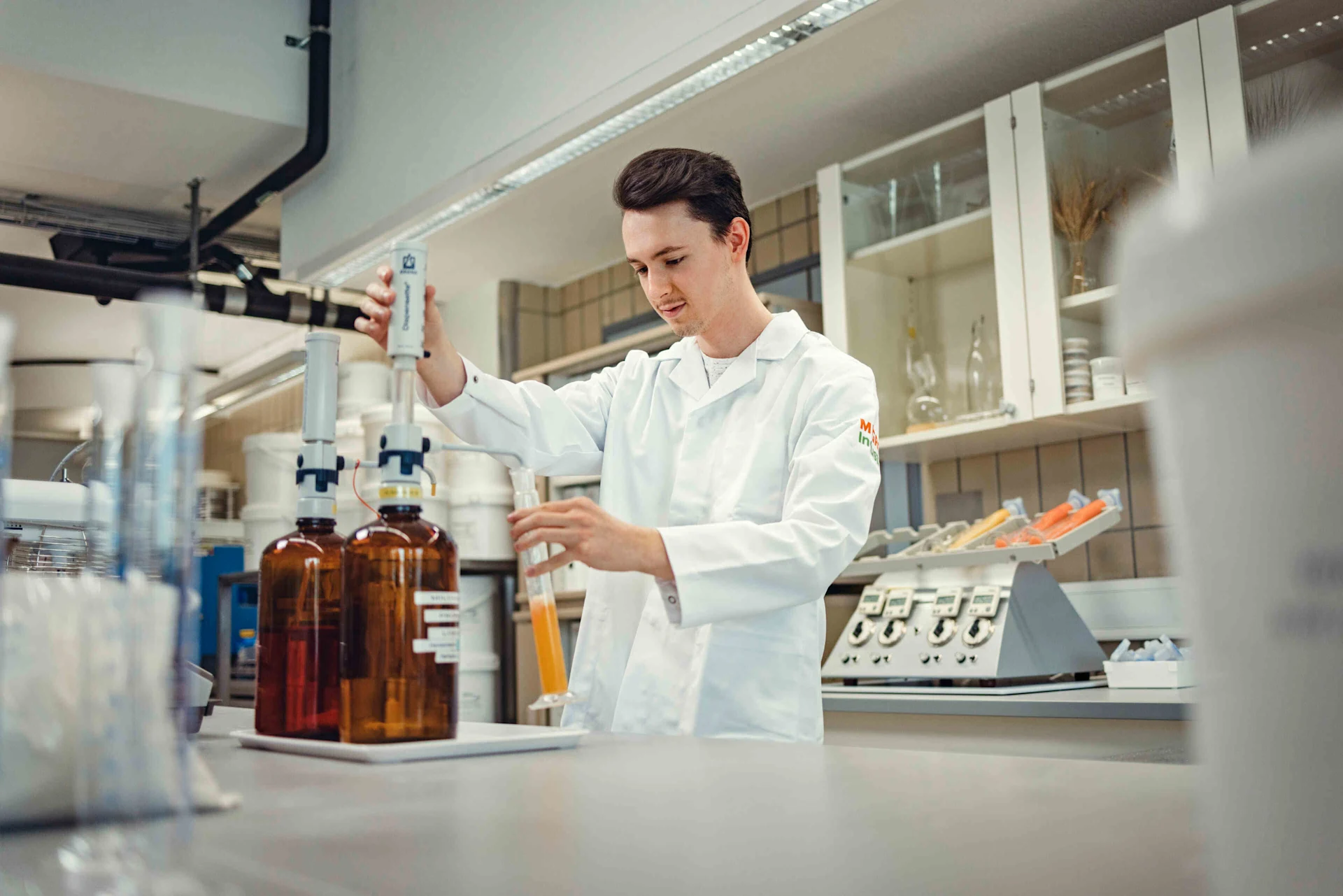
Sustainability
Building a green future
With support from the Migros Pioneer Fund, two companies are showing that eco-friendly construction is feasible.
navigation
Researching together

Research is not an end in itself for us. Together with research institutions and local civil society organisations, we want to find solutions to reduce the environmental impact along our value-added chain and strengthen local communities. That is why we work with partners to implement projects in various areas in Switzerland and abroad. Many projects are currently under way, others have already been completed. We present some of these projects here.
We engage in targeted research collaboration activities to gain valuable insights that contribute to achieving our sustainability goals and creating tangible benefits for our customers.
We are currently working on many research projects regarding sustainability – get an overview!
Partner: Müller-Thurgau Foundation, Project Management Ebenrain Centre
Duration: 2023–2025
Regenerative agriculture stands for an agricultural approach or near-natural, sustainable food production that has a positive effect on humus build-up and soil fertility, as well as closing the local nutrient and water cycles. However, the effect of different elements of regenerative agriculture has been little studied scientifically, and practically none at all in fruit growing.
We are therefore supporting the project awarded by the Müller-Thurgau Foundation (project management Ebenrain Centre for Agriculture, Nature and Food), which aims to measure the effect of central components of regenerative agriculture on soil fertility, yield and quality in order to be able to provide targeted advice to fruit growers in the future.
Duration: 1996–1998 and 2022–2025
Insects play an important role in nature. They not only pollinate plants, but are also an important source of food for other animals. This means that if insects die, this has far-reaching consequences for our ecosystems – and therefore for all of us. We want to help stop the extinction of species and promote biodiversity.
That is why we are supporting the Research Institute of Organic Agriculture (FiBL). Together we want to find out what long-term effects the intensity of cultivation in agriculture has on insect mortality and biodiversity.
Our approach: we compare the insect biomass and diversity on different farms in the periods 1996–1998 and 2022–2024. From the results, we derive appropriate measures to reduce insect mortality.
Partner: Various
Duration: ongoing
Feeding the world’s population is one of the biggest challenges of the future. Every year, more than one billion tons of food is wasted, while millions of people are undernourished. In addition, our current methods of food production will soon no longer be sufficient to feed the growing world population.
We want to tackle these environmental and social challenges by working with the EPFL Integrative Food and Nutrition Center to find innovative solutions. In doing so, we are using EPFL’s expertise, particularly in the areas of digital technologies and materials science. For example, we are using artificial intelligence to explore how new and innovative products can reach consumers.
Partner: Various
Duration: ongoing
Recycling and minimising waste are crucial to preserving our environment. That is why we are constantly working on reducing the packaging for our products or making it more environmentally friendly. We rely on the life cycle assessments of the packaging.
Our specialists produce the life cycle assessments themselves in straightforward cases and we consult external experts on more complex matters. We use specialist firms, such as Carbotech, to analyse our products and their environmental impact. The results indicate how we can make improvements to the sustainability of our product range in future. For example, we have been using eco-friendly veggie bags, which can be reused several times, in the fruit and vegetable section for several years now.
Duration: 2020 – 2025
Today, cows have to produce significantly more milk than in the past. At the same time, however, the lifespan of cows has decreased in recent years. Cows are among the best-known producers of climate-damaging methane gas.
As a milk purchaser, we are keen to reconcile economic efficiency, animal welfare and climate protection in milk production. This is the focus of a project co-financed by us at the Research Institute of Organic Agriculture (FiBL).
The researchers analyse all the factors that influence the lifespan of dairy cows and use the results to develop sustainable strategies to improve that of Swiss dairy cows - for the benefit of the livestock, to protect the climate and to improve economic viability for dairy farmers.
Partner: AgriCircle
Duration: 2022 – 2030
Soils are an important component of the Earth’s ecosystem and play a central role in food production. In the context of the current and future challenges facing humanity (food security, climate change and biodiversity loss), maintaining and improving soil quality must be a top priority. Soil organic matter (SOM; or humus) plays the most important role in this context. The quantity and quality of SOM are central to climate regulation, water balance and the provision and storage of nutrients. The development and establishment of agricultural measures and concepts to stabilise or build up SOM are therefore of utmost importance for agriculture and food production.
The Migros Humus Programme is implemented by the company AgriCircle and financed by the Migros M-Climate Fund. The programme focuses on humus-building measures in regenerative agriculture. These include optimised arable farming measures (reduced tillage, crop rotation, green manuring), composting and the introduction of biochar. AgriCircle and its partners have established a measurement and advisory concept to ensure that the farms receive optimal support on site over the course of the programme. The Research Institute of Organic Agriculture (FiBL) provides scientific support for the project to ensure that the latest findings from science and practice are incorporated.
Partner: ETH Zurich, World Food System Center
Duration: since 2006
In Europe, almost 90 million tons of food end up as waste every year. Each of us throws away an average of 180 kilograms of meat, fruit, vegetables or dairy products every year. But that is not the only problem in our food system. Both industrial factory farming and industrial agriculture are at the expense of our environment. They lead to increased air pollution, loss of biodiversity and pollution of the soil, rivers and lakes. It is clear that we need to make a change and make our food system more sustainable in the long term. We want to do our part: for example, Migros Industry has worked with ETH professors at the ETH Zurich World Food System Center on several projects to promote sustainability, including in the areas of agriculture, meat production and food preservation. Our goal is to develop and implement new solutions for a sustainable food value-added chain.
Partner: Institute for the Study of Work and Employment (FAA-HSG)
Duration: ongoing
Since Migros was founded, the quality of life of our employees has been our focus. Their satisfaction and health are very important to us. We want to create the best possible working conditions at all levels.
That is why we are involved in the executive committee of the Institute for the Study of Work and Employment (FAA-HSG). The institute is dedicated to the complex issues of the world of work from an interdisciplinary perspective. It is a point of contact for questions relating to work, labour law, personnel management and the organisation of work. It sees itself as a research partner and provides training and further education on the basis of this research. It is also involved in the social debate on this topic.
Important raw materials such as cocoa and coffee are grown by small farmers in global supply chains. These key players face challenges such as climate change, low prices or a lack of access to technology and knowledge, and often do not earn enough to ensure a decent standard of living for themselves and their families.
Together with Delica, our supplier ECOM Agroindustrial Corp. Ltd. and the IDH Foundation, Migros is researching possible approaches and measures to support small farmers in achieving a living income. The “Bridging Living Income in Colombia” project is being implemented with coffee farmers in Huila, Colombia. The package of measures includes various training courses and investments to increase productivity, gain access to premium markets, optimise production costs and diversify income. The project will investigate the effects of these measures on the household income of the families and the extent to which these measures can increase the income of smallholder families.
Together with our partners, we conduct research at all stages of the value-added chain. Get exciting insights into our research projects in our stories!